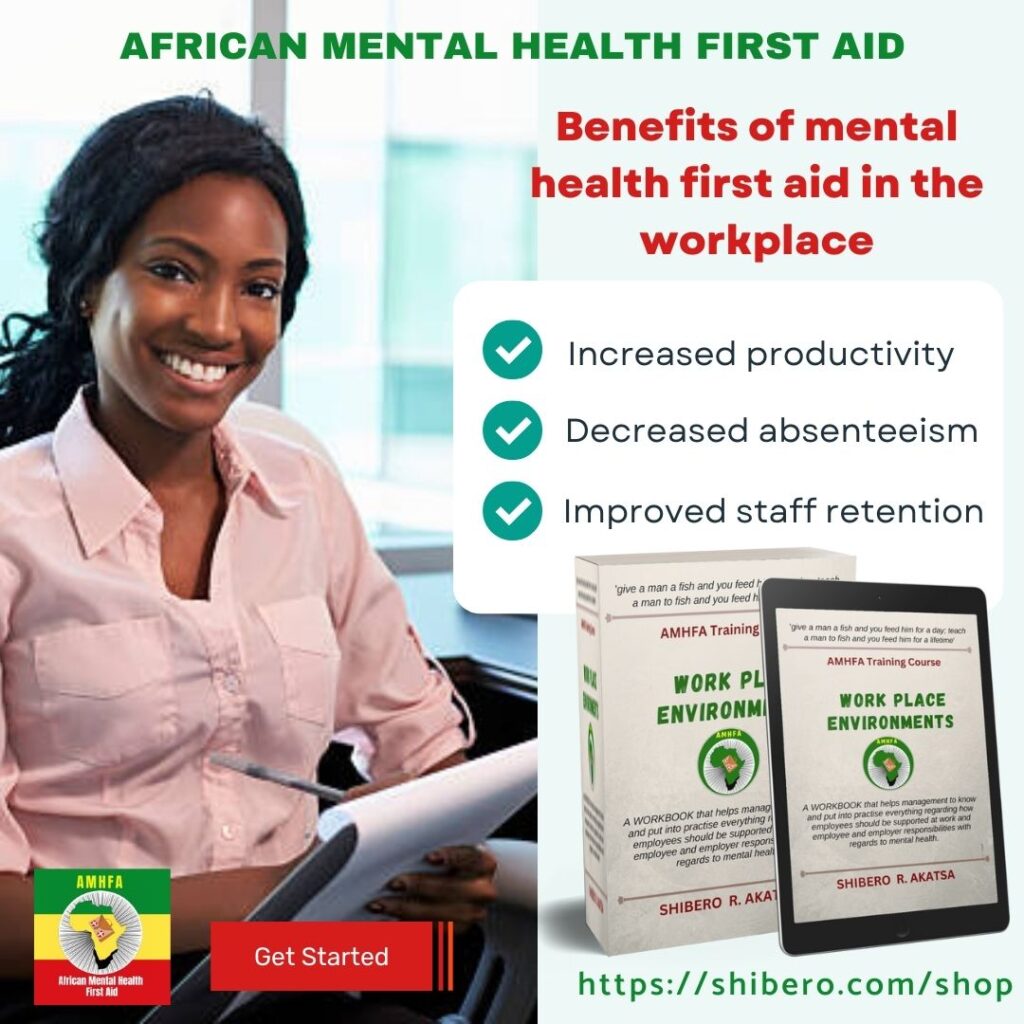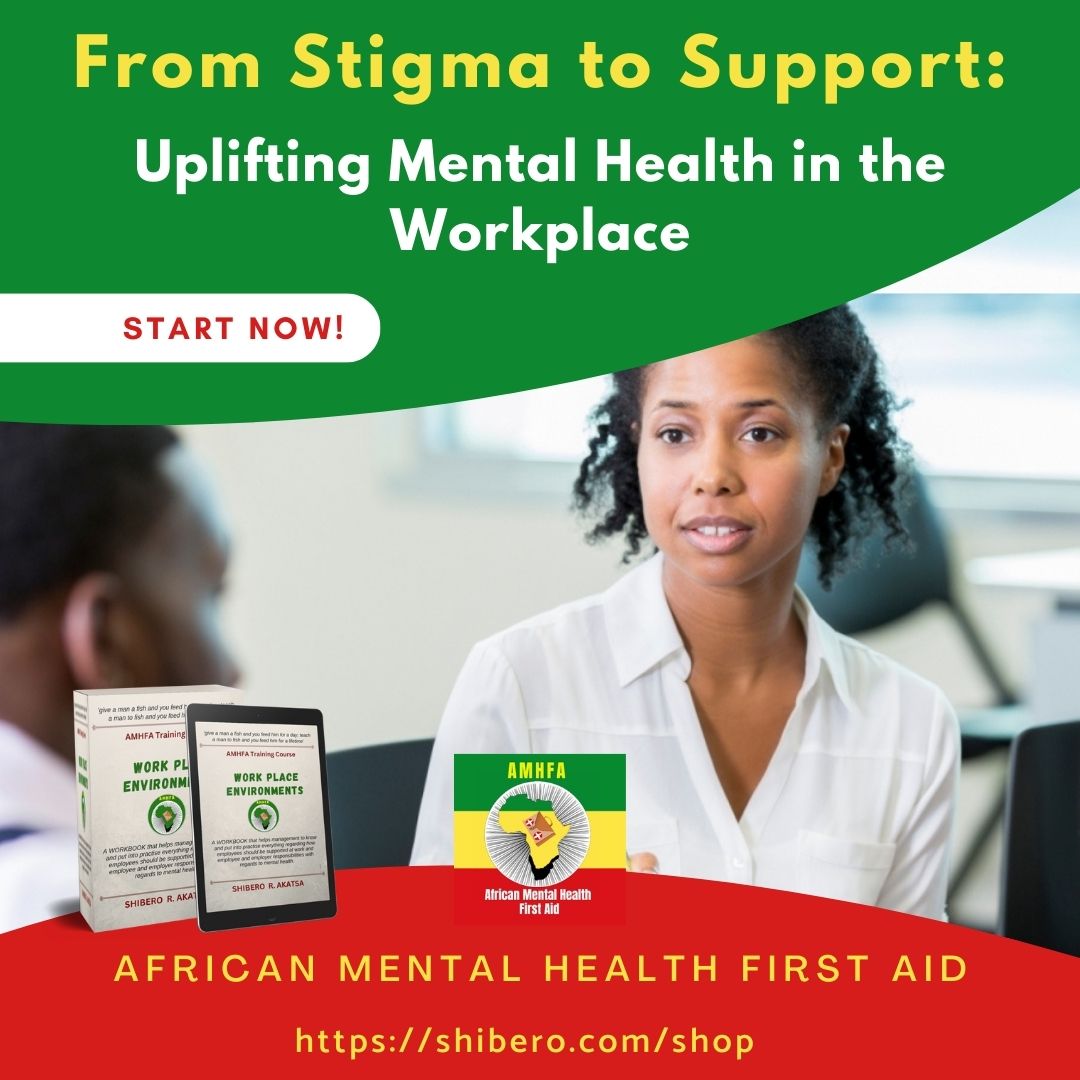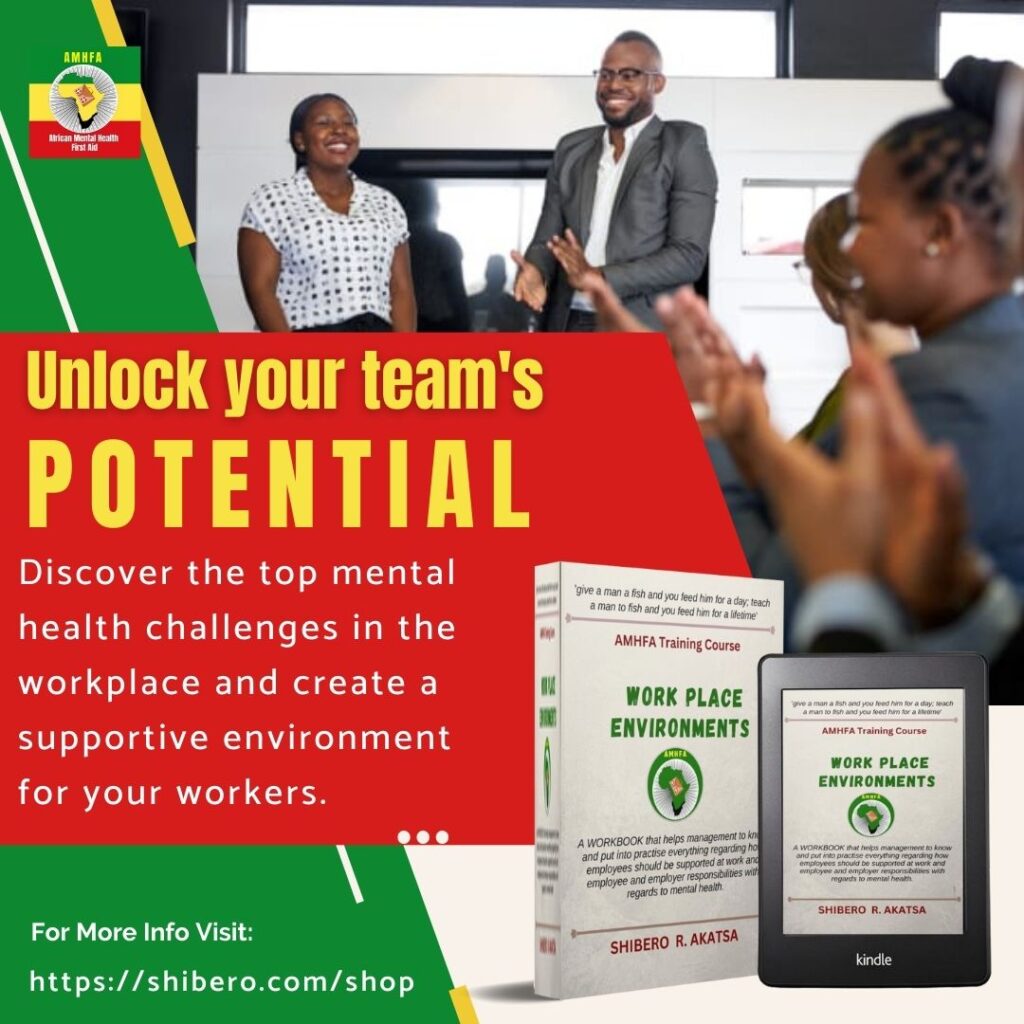AMHFA FOR THE WORKPLACE
Globally 350 million people suffer from depression, with rates of depression across the continent of Africa at 100,000,000 with 66,000,000 of this being women in Africa. All this is higher than those to be found in Europe or the United States of America. There is very little or no access to effective treatment or any treatment at all.
The World Bank considers depression to be the “greatest thief of productive economic life” on the continent of Africa. Depression is often triggered by an accumulation of stress, that goes untreated. The workplace is a place where ongoing stress is generated daily.
Although work related stress is not an illness the psychological impact does make employees more vulnerable to depression, especially women as reflected in the figures below above. Women & Depression in Africa:
- > 66 million women are affected by depression
- > 25 million of those affected are in urban centers .
- > 9.5 million of those working in urban centers in formal employment, entrepreneurs in senior management are most vulnerable to chronic stress, chronic fatigue syndrome and depression
Women in the workplace, are three times more vulnerable to depression. Considering women contribute more than 50% of the workforce, there is a case for supporting women’s mental wellness through providing them with sustainable resilience skills and creating an environment that will enable women to be productive, without acquiring mental ill health.




Why Employers Should Invest in Employee Mental Wellbeing
Employees who feel burnout at work often blame their workplace.
We spend roughly a third of our adult lives at work, which means that finding a mentally healthy workplace is critical.
That is one reason why Arican Mental Health First Aid at Work is so important, particularly for organisations that want to develop a skilled, productive workforce.
At work, we often face high stress situations and quickly approaching deadlines. Our technology-driven culture brings new social pressures and a barrage of constant communication.
And research tells us that because of the high use of technology in the workplace, employees are communicating primarily through email, text and social media.
There is a “lack of genuine human connection” and as a result, employees more often experience loneliness and mental health challenges.




